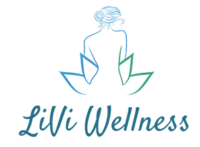The Truth About Cholesterol: Why It’s Not Always the Villain
When we hear the word “cholesterol,” many of us think of something bad, something that clogs our arteries and leads to heart attacks. But what if I told you that cholesterol isn’t all bad and, in fact, it’s a key part of keeping us healthy? Today, let’s break down some common myths about cholesterol and learn why it’s not always the villain it’s made out to be.
What Is Cholesterol, Really?
Cholesterol is a type of fat that your body needs to function. Your liver actually makes cholesterol, and it’s found in every cell in your body. Cholesterol is super important for things like building cells, making certain hormones, and even helping your body heal. Think of cholesterol as your body’s handyman-it shows up when repairs are needed!
There are two main types of cholesterol:
- HDL (High-Density Lipoprotein) – Also known as the “good” cholesterol. It helps transport cholesterol away from your arteries and back to your liver, where it can be processed and removed.
- LDL (Low-Density Lipoprotein) – This is often called “bad” cholesterol. If there’s too much of it, LDL can stick to your artery walls, leading to blockages and increasing the risk of heart disease.
But here’s the catch: Not all LDL is bad! Only when LDL becomes damaged, or “oxidized,” does it become harmful. It’s like a piece of metal that gets rusty-oxidized cholesterol can lead to inflammation and artery problems.
Why Your Body Needs Cholesterol
Cholesterol plays a big role in healing and protecting your body. If you get sick, injured, or even catch a cold, cholesterol levels naturally go up to help your body recover. For older adults, cholesterol can be even more important because it helps with healing as we age. In fact, research shows that women over 60 with higher cholesterol tend to live longer compared to those with low levels.
It turns out that cholesterol isn’t always the enemy. Studies have shown that having high cholesterol doesn’t necessarily mean you’re at a higher risk of heart disease. In one study, researchers found that women with higher cholesterol actually had a lower risk of dying from heart attacks or strokes.
So, What’s the Real Problem?
The real trouble starts when cholesterol gets oxidized-this means it’s been damaged by things like smoking, eating lots of processed foods, or even having a poor diet. Oxidized cholesterol is what builds up in your arteries and causes health issues. It’s not just about the amount of cholesterol you have; it’s about whether it’s healthy or damaged.
Things like smoking and eating trans fats (found in fried foods and some packaged snacks) can make cholesterol worse. On the flip side, healthy habits like eating whole foods, staying active, and avoiding processed junk can help keep your cholesterol in good shape.
How Can You Keep Cholesterol Healthy?
Here are some friendly tips to keep your cholesterol in check:
- Quit Smoking: Smoking damages your cholesterol and causes inflammation. Quitting is one of the best things you can do for your health.
- Stay Active: Gentle exercise can help boost your HDL (good cholesterol) and keep your heart strong.
- Eat Whole Foods: Avoid trans fats found in processed foods, and try to eat plenty of fruits, veggies, nuts, and healthy fats like olive oil. Healthy foods help reduce inflammation and keep your cholesterol from becoming damaged.
- Watch Your Sugar: Eating too much sugar can lower your HDL and change LDL into a form that clogs arteries faster. Cutting back on sugar and processed carbs can go a long way in keeping your heart healthy.
A Final Word on Cholesterol
Cholesterol has gotten a bad reputation over the years, but it’s actually a key player in keeping your body healthy and strong. Remember, not all cholesterol is bad-it’s the oxidized kind that can be dangerous. By eating well, staying active, and avoiding things like smoking and trans fats, you can keep your cholesterol in good shape and take care of your heart.
So, don’t be afraid of cholesterol. It’s more than just a number on a test result-it’s an important part of your body’s natural system, helping you heal and stay healthy. Treat your body well, and your cholesterol will work for you, not against you!
